
Ulcer is a sore that affects the lining of the esophagus, stomach, duodenum - where ulcer occurs most frequently, and intestines. Stomach works by creating a mucous coating that protects the mucous membranes and helps cell renewal. If there is a disorder of this function it may result in the creation of ulcers. Opinions, that stress is the main cause of ulcer in the digestive tract, are wrong. In fact, ulcer is a consequence of action of bacteria known as Helicobacter pylori. Everything else, such as increased gastric acid, stress, excessive use of spicy and acidic foods, long-term use of anti-inflammatory drugs (Ibuprofen, Aspirin, naproxen, ketoprofen, medicines for arthritis) can only aggravate an ulcer, which is already present in the digestive tract. This bacterium has the capability to penetrate the protective layer of mucus, and settle on the surface cells of the gastric creating Urease, an enzyme that produces ammonia.
Ulcers are usually manifested by mild abdominal pain or not at all feeling it. However, it is possible to show symptoms such as nausea and vomiting, loss of appetite and weight and symptoms of bleeding ulcers, which include fatigue, malaise and vomiting blood or bleeding during discharge.
Ulcer treatment primarily involves the destruction of Helicobacter pylori with triple therapy that usually consists of using two antibiotics and Bismuth salicylate. This therapy is mainly focused on reduction of stomach acid in order to protect affected area and allow healing ulcers. In addition to these drugs, there are some that also have shown efficacy in the treatment of ulcers. They include Misoprostol, H2 blockers, proton pump inhibitors and Antacids that work on the principle of reducing gastric acid or neutralize it to protect the gastric mucosa.
H2 blockers prevent the creation of histamine that causes increasing gastric acid. In combination with H2 blockers usually uses Antacids for relieving pain during the first few days. Treatment takes 6-8 weeks and the ulcer is generally not refundable. However, there are times when the ulcer becomes chronic when treatment is repeating for years. H2 blockers include drugs such as Ranitidine, Famotidine and Cimetidine.
Acid pump inhibitors reduce gastric acid by fully blocking final phase of acid secretion. The main representative of these medications is Omeprazole, which temporarily uses in the treatment of ulcers.
Mucosal is protective drug which don’t prevent the secretion of gastric acids than protecting the stomach lining of the acid attack and the possible damage. Drugs of this type that is commonly used are Sucralfate (treats ulcer and prevent further damage to mucous) and Misoprostol (uses for the prevention of ulcer) - which stimulates the production of mucus and bicarbonate and increases the blood flow through the stomach protecting the stomach lining.
Drugs that are available in pharmacies without a prescription prescribed are Antacids - ease pain and help restore the mucous membrane, Antibiotics - used in conjunction with medications for reducing stomach acid destroys Helicobakter pylori, in order to no returns, and Bismuth subsalicylate - which combines the protective and antibacterial effects.


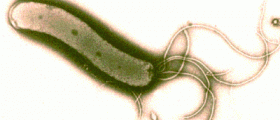
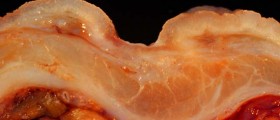



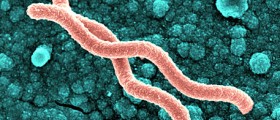
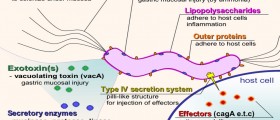

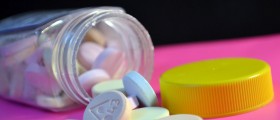

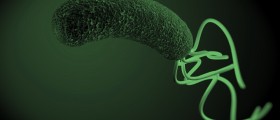




Your thoughts on this
Loading...